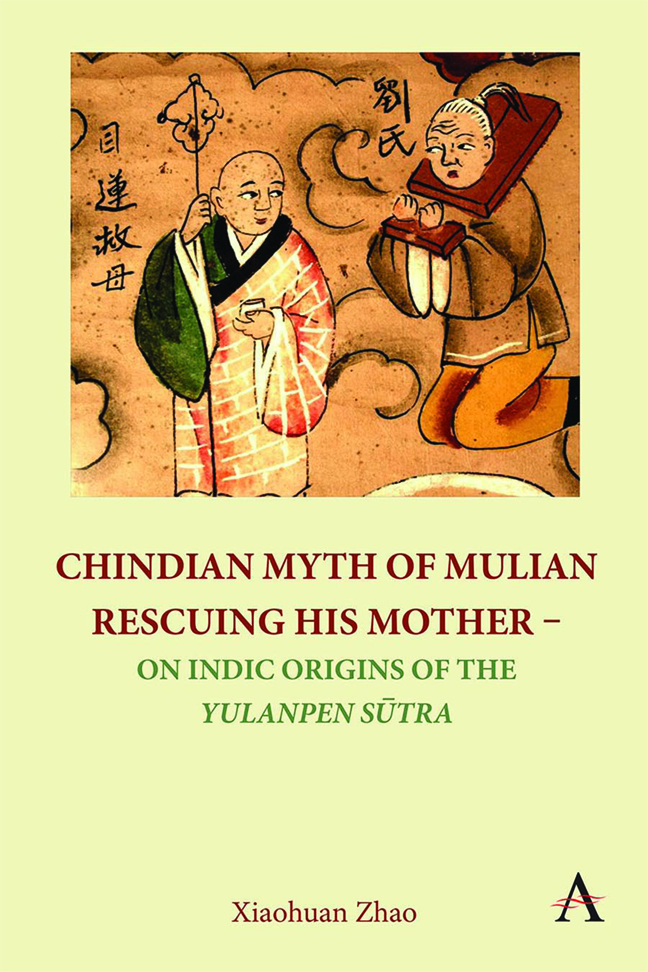4 - Yulanpen Sūtra: Apocryphal or Authentic?
Published online by Cambridge University Press: 02 March 2024
Summary
Although the Yulanpen Sūtra is widely considered to be the primary source for the Mulian myth, the origin of this sūtra has been the subject for much debate and discussion among scholars of Chinese religion since the midtwentieth century. There is no extant such scripture in Indic sources known to us, nor is there any mention in them of Maudgalyāyana's journeys to the Dark Regions to rescue his mother (BandoÌ 2005; Kapstein 2007). The dearth of direct textual evidence in Indic sources and the centuries-long confusion and controversy surrounding the translation, transmission and cataloguing of the Yulan Sūtra/Yulanpen Sūtra as examined in the previous chapter have cast doubt on the authenticity of this Buddhist scripture. Little wonder that the Yulanpen Sūtra is frequently regarded as a Chinese Buddhist apocryphal scripture as shown in Ikeda (1926: 59–64), Honda (1927), Fujino (1956: 340–345), Iwamoto (1968; 1979: 10–20), Miyakawa (1973: 225), Makita (1976: 47–50, 84), Chen (1983: 1–2), Mair (1989: 17), Irisawa (1990: 152), Zhu (1987: 54–59; 1993: 3–11), Teiser (1986: 48–49; 1988: 46; 1989: 192), Liao (1995: 5–6), Hsiao (1995: 231–296; 1996: 83–98; 2005: 326–333), Yin (2006: 17–19), Yoshikawa (2003: 62), Tsuchiya (2005: 189–191) and Xiong (2014; 2015: 247–289), to name but a few. Most representative of them are perhaps Iwamoto, Zhu and Hsiao.
Major Arguments against the Authenticity of the Text
Iwamoto was one of the first major Japanese scholars to challenge the authenticity of the Yulanpen Sūtra. He (1968, quoted in Zhu 1993: 8; 1979: 9ff.) claims that the sūtra is not a translation from India, let alone a translation by Dharmarakṣa , mainly on the grounds that:
(1) The content of the Mulian story is not found elsewhere in sources from ancient India;
(2) The ‘divine eye’ (Skr. divyacakṣ́us; Ch. tianyan) is a common expression in Indian Buddhist texts, whereas the ‘eye of the Way’ (daoyan) that occurs in the Yulanpen Sūtra is a typical Chinese indigenous expression;
(3) The conception of ‘filial devotion and submission’ (xiaoshun) is peculiar to Chinese lineage culture, as is the conception of ‘six kinds of relatives’ (liuqin) that finds no equivalent in Indian Buddhist texts, where the odd number ‘five’ or ‘seven’ tends to be used to refer to types of relatives;
- Type
- Chapter
- Information
- Chindian Myth of Mulian Rescuing His MotherOn Indic Origins of the Yulanpen Sūtra, pp. 37 - 74Publisher: Anthem PressPrint publication year: 2023



